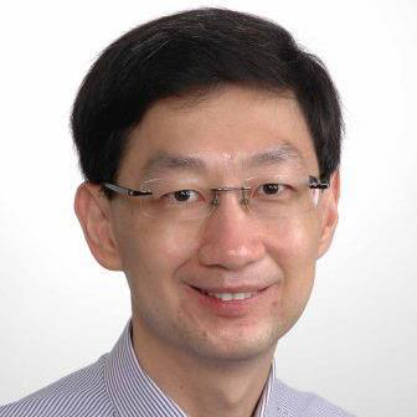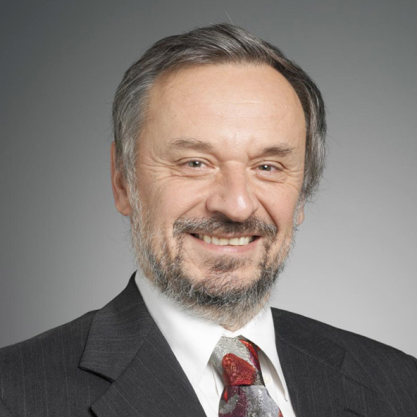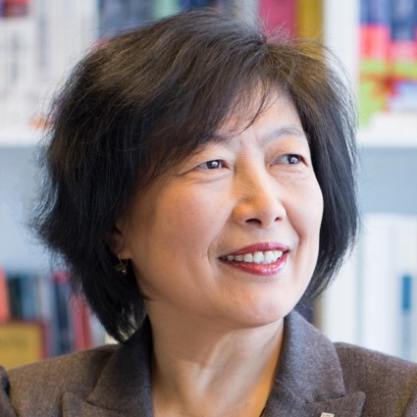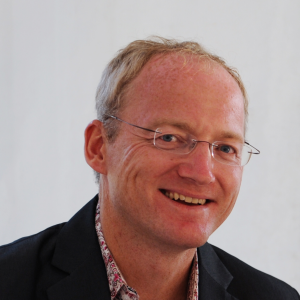Keynote Speakers

Kay Chen Tan is a full Professor with the Department of Computer Science, City University of Hong Kong, Hong Kong. He is the Editor-in-Chief of IEEE Transactions on Evolutionary Computation, was the EiC of IEEE Computational Intelligence Magazine (2010-2013), and currently serves on the Editorial Board member of 15+ international journals. He is an elected member of IEEE CIS AdCom (2017-2019) and is an IEEE Distinguished Lecturer (2015-2017). He has published 200+ refereed articles and 5+ books. He is a Fellow of IEEE.

Zbigniew Michalewicz is the Chief Scientist of Complexica, an Artificial Intelligence software company that helps large organisations sell more products and services, at a higher margin, through the use of automated analytics. He is also Emeritus Professor at the School of Computer Science, University of Adelaide and holds Professor positions at the Institute of Computer Science, Polish Academy of Sciences, at the Polish-Japanese Academy of Information Technology, and an honorary Professor position at State Key Laboratory of Software Engineering of Wuhan University, China. He is also associated with Structural Complexity Laboratory at Seoul National University, South Korea. In December 2013 he was awarded (by the President of Poland, Mr. Bronislaw Komorowski) the Order of the Rebirth of Polish Polonia Restituta - the second highest Polish state decoration civilian (after the Order of the White Eagle), awarded for outstanding achievements in the field of education, science, sports, culture, arts, economy, national defence, social activities, the civil service and the development of good relations with other countries.
For many years his research interests were in the field of evolutionary computation. He published several books, including a monograph Genetic Algorithms + Data Structures = Evolution Programs (3 editions, a few translations, over 18,300 citations, source: Google Scholar), and over 250 technical papers in journals and conference proceedings that are cited widely (over 40,000 citations, source: Google Scholar). He was one of the editors-in-chief of the Handbook of Evolutionary Computation and the general chairman of the First IEEE International Conference on Evolutionary Computation held in Orlando, June 1994.
Zbigniew Michalewicz has over 35 years of academic and industry experiences, and possesses expert knowledge of numerous Artificial Intelligence technologies. He was the co-Founder and Chief Scientist of NuTech Solutions, which was acquired by Netezza and subsequently by IBM, and the co-Founder and Chief Scientist of SolveIT Software, which was acquired by Schneider Electric after becoming the 3rd fastest growing company in Australia. Both companies grew to approximately 200 employees before they were being acquired.
During his time in the corporate world, Professor Michalewicz led numerous large-scale predictive analytics and optimisation projects for major corporations, including Ford Motor Company, BHP Billiton, U.S. Department of Defence, and Bank of America. Professor Michalewicz also served as the Chairman of the Technical Committee on Evolutionary Computation, and later as the Executive Vice President of IEEE Neural Network Council.

Distinguished Professor Jie Lu is an internationally renowned scientist in the areas of computational intelligence, specifically in decision support systems, fuzzy transfer learning, concept drift, and recommender systems. She is the Associate Dean in Research Excellence in the Faculty of Engineering and Information Technology at University of Technology Sydney (UTS) and the Director of Centre for Artificial Intelligence (CAI) at UTS. She has published six research books and 400 papers in Artificial Intelligence, IEEE transactions on Fuzzy Systems and other refereed journals and conference proceedings. She has won 8 Australian Research Council (ARC) discovery grants and many other research grants. She serves as Editor-In-Chief for Knowledge-Based Systems (Elsevier) and Editor-In-Chief for International Journal on Computational Intelligence Systems (Atlantis), has delivered 20 keynote speeches at international conferences, and has chaired 10 international conferences. She is a Fellow of IEEE and Fellow of IFSA.

Professor Toby Walsh is Scientia Professor of Artificial Intelligence at the University of New South Wales and Data61. He has a B.A. from the University of Cambridge and a M.Sc. and Ph.D. degree from the University of Edinburgh. He was named by the Australian newspaper as one of the "rock stars" of Australia's digital revolution. Professor Walsh is a strong advocate for limits to ensure AI is used to improve our lives. He has been a leading voice in the discussion about lethal autonomous weapons, speaking at the UN in New York and Geneva on the topic. He is a Fellow of the Australia Academy of Science and of the Association for the Advancement of Artificial Intelligence, a Humboldt Award winner and recipient of the NSW Premier's Prize for Excellence in Engineering and ICT.
Log In